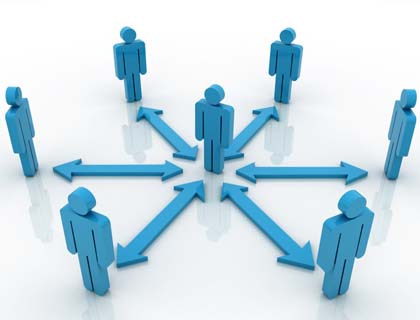A cursory look at the history of political philosophy shows that most of the works are dedicated to the leaders – one of the basic discussions has been on how the leaders should be? There are piles of books and arguments regarding the ways leaders can adopt to be influential and can thus lead their nations. There are even discussions on how the leaders should look like, how they ought to talk and how they must walk. Moreover, there has been great emphasis on the role and the importance of the leaders in the society. Though before Plato, there were thinkers who thought that people who are ruled are as important as the leaders, that’s why Pericles of Athens had said, “Although only a few may originate a policy, we are all able to judge it,” nonetheless, Plato himself thought that leaders were indispensible, “The greatest principle of all is that nobody, whether male or female, should be without a leader. Nor should the mind of anybody be habituated to letting him do anything at all on his own initiative; neither out of zeal, nor even playfully. But in war and in the midst of peace—to his leader he shall direct his eye and follow him faithfully. And even in the smallest matter he should stand under leadership. For example, he should get up, or move, or wash, or take his meals .. only if he has been told to do so. In a word, he should teach his soul, by long habit, never to dream of acting independently, and to become utterly incapable of it.”
In fact, Plato’s philosophy was the basis for a totalitarian society. It was his theory that lead to the demands for the Philosopher King and that started the discussions regarding the role and the nature of the leaders.
Years after what Plato had said, talking about the qualities of the Prince, Niccolo Machiavelli had said that the Prince should be as brave as a lion and as cunning as a fox.
Moreover, there are various discussions and various books that are written about the grandeur, achievements and activities of the kings and the leaders. The authoritarian societies generated historians that would only write about the achievements of the leaders and their magnificence.
Though since the rise of modern democratic states there has been more emphasis on the liberty and openness of the society and the discussion has to some extent been diverted from the leaders to the people. Some basic questions now asked are how should the people be and what sorts of institutions must be formed and how they must be maintained, nevertheless, the discussions regarding the leaders and their exalted positions and roles still persist.
It is important now that in the modern times more discussion and attention should be diverted from the leaders to the people and the institutions they form. As in the modern democracies it is the people who ultimately make decisions through their votes and their voices. As Eugene Jarecki had said, “The whole idea of democracy is that we ourselves, the people, are supposed to make a path of our politics, and it is we who with our feet and our vote and our labors and our vigilance are supposed to shape our country.” Thus, it is now time to trust and depend on the people, not the leaders alone.
Though leaders play their role but their role should be of a team player, not of a tyrant who strives to push the people by force towards a particular goal. Except some countries where still there are authoritarian regimes, the leaders are expected to be more like servicemen, making different services available for the people.
The people, at the same time, are expected to be vigilant and aware regarding their rights and responsibilities. They now require understanding that they don’t have to depend on the leaders all the times. They have to take responsibility and start changing their lives and their societies by themselves.
It has been observed that the people blame the leaders on most of the cases even in the cases where the responsibilities are on the people themselves. It has to be understood now that when a leader can’t change the fate of a nation alone in the similar fashion he can’t be responsible for all the bad things that happen to the nation. The people, thus, must not pass the buck and at least shoulder their own responsibilities.

